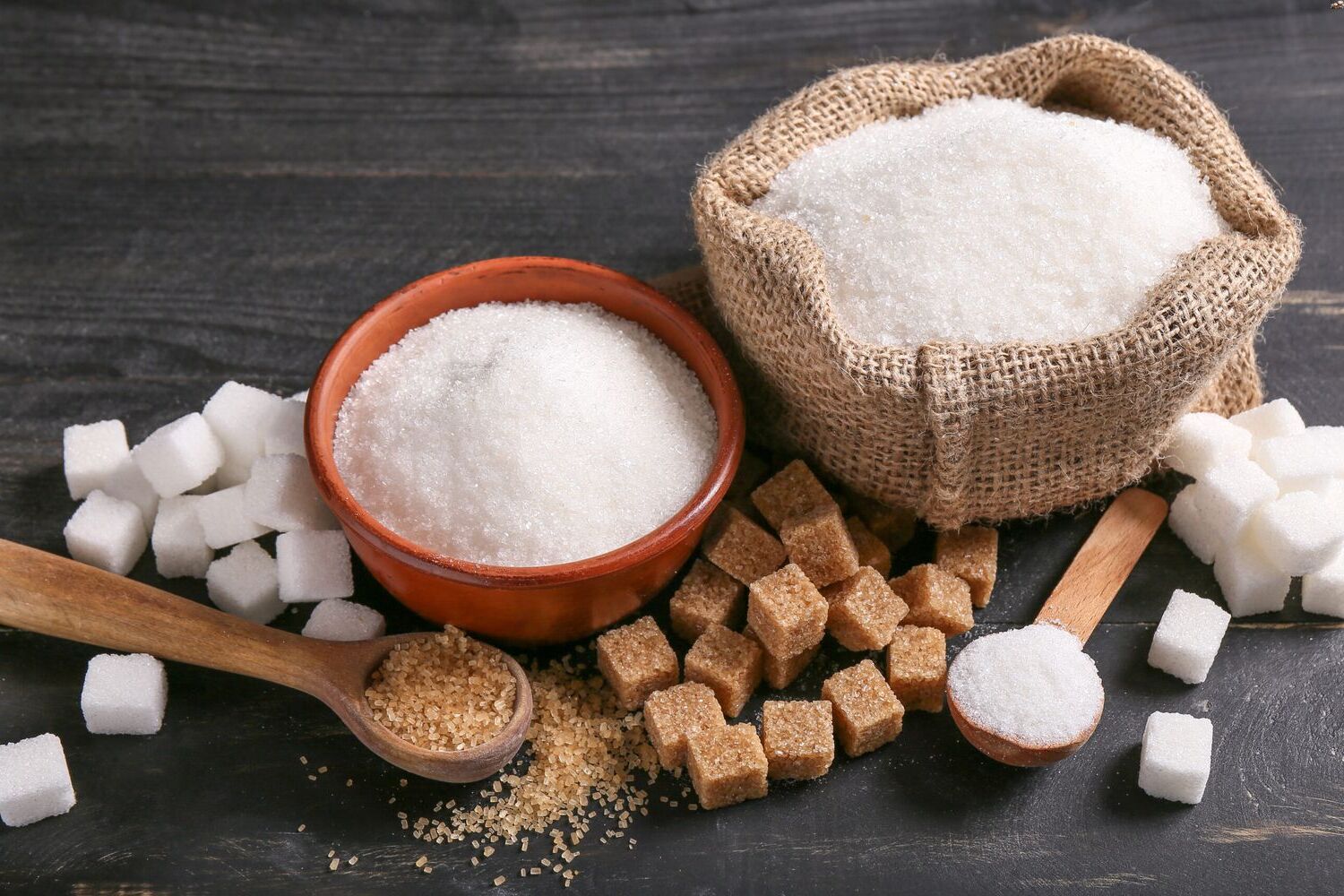
What are sugars? Sugars are simple carbohydrates found in many foods and drinks. They provide energy for our bodies but can also lead to health issues if consumed in excess. Why should we care about sugars? Understanding sugars helps us make better dietary choices, manage weight, and prevent diseases like diabetes. Where do sugars come from? They naturally occur in fruits, vegetables, and dairy products, but are also added to many processed foods. How do sugars affect our bodies? They can give a quick energy boost but may cause crashes later. Are all sugars the same? No, there are natural sugars and added sugars, each impacting health differently.
Key Takeaways:
- Sugar comes in various forms and has a significant impact on our health. It's important to differentiate between natural and added sugars to make better dietary choices.
- Understanding the health impacts of sugar and how to reduce intake can lead to numerous health benefits. Be mindful of hidden sugars in processed foods and opt for natural sweeteners.
What is Sugar?
Sugar is a sweet, crystalline substance used as a sweetener in foods and beverages. It comes in various forms and has a significant impact on our diet and health. Let's dive into some fascinating facts about sugar.
-
Types of Sugar: There are several types of sugar, including glucose, fructose, sucrose, lactose, and maltose. Each type has a different source and function in the body.
-
Natural vs. Added Sugar: Natural sugars are found in fruits, vegetables, and dairy products. Added sugars are those incorporated during processing or preparation of foods.
-
Sugar Cane and Sugar Beets: Most of the world's sugar comes from sugar cane and sugar beets. These plants are processed to extract the sugar we use daily.
Historical Facts about Sugar
Sugar has a rich history that spans thousands of years. Here are some intriguing historical facts.
-
Ancient India: Sugar was first produced from sugarcane plants in northern India around 500 BCE.
-
Sugar in Europe: It was introduced to Europe by the Arabs during the Middle Ages. It was initially considered a luxury item.
-
Sugar and Slavery: The sugar industry played a significant role in the transatlantic slave trade. Slaves were used to work on sugar plantations in the Caribbean and Americas.
Health Impacts of Sugar
Sugar affects our health in various ways, both positively and negatively. Understanding these impacts can help us make better dietary choices.
-
Energy Source: Sugar is a quick source of energy. The body breaks it down into glucose, which fuels our cells.
-
Dental Health: Excessive sugar consumption can lead to tooth decay. Bacteria in the mouth feed on sugar, producing acids that erode tooth enamel.
-
Obesity and Diabetes: High sugar intake is linked to obesity and type 2 diabetes. It can lead to insulin resistance, a precursor to diabetes.
-
Heart Disease: Consuming too much sugar can increase the risk of heart disease. It can raise blood pressure and increase inflammation.
Sugar in Food and Drinks
Sugar is a common ingredient in many foods and beverages. Its presence can sometimes be surprising.
-
Hidden Sugars: Many processed foods contain hidden sugars. These include sauces, dressings, and even bread.
-
Soft Drinks: Soft drinks are a major source of added sugars. A single can of soda can contain up to 10 teaspoons of sugar.
-
Fruit Juices: While fruit juices contain natural sugars, they can also be high in added sugars. Always check the label.
Sugar Substitutes
With the rise of health consciousness, sugar substitutes have become popular. These alternatives can provide sweetness without the same health risks.
-
Artificial Sweeteners: Aspartame, sucralose, and saccharin are common artificial sweeteners. They are much sweeter than sugar and contain fewer calories.
-
Natural Sweeteners: Honey, maple syrup, and agave nectar are natural sweeteners. They contain more nutrients than refined sugar but should still be consumed in moderation.
-
Stevia: Stevia is a plant-based sweetener. It is calorie-free and much sweeter than sugar.
Fun Facts about Sugar
Sugar isn't just about health and history. There are some fun and quirky facts too.
-
Sugar Crystals: Sugar crystals are used in science experiments to grow rock candy. It's a fun way to learn about crystallization.
-
Sugar in Medicine: Sugar has been used in medicine to help wounds heal faster. It draws out moisture, which can inhibit bacterial growth.
-
Sugar and Baking: In baking, sugar does more than sweeten. It helps with browning, texture, and moisture retention.
Global Sugar Consumption
Sugar consumption varies around the world. Different cultures have unique ways of incorporating sugar into their diets.
-
Highest Consumers: The United States and Brazil are among the highest consumers of sugar per capita.
-
Traditional Sweets: Many cultures have traditional sweets that are rich in sugar. For example, baklava in the Middle East and gulab jamun in India.
-
Sugar in Tea and Coffee: In many countries, adding sugar to tea and coffee is a common practice. This habit significantly contributes to daily sugar intake.
Environmental Impact of Sugar Production
The production of sugar has significant environmental implications. Understanding these impacts can help us make more sustainable choices.
-
Deforestation: Sugarcane farming has led to deforestation in tropical regions. This affects biodiversity and contributes to climate change.
-
Water Usage: Sugarcane and sugar beet farming require large amounts of water. This can strain local water resources.
-
Soil Degradation: Intensive sugar farming can lead to soil degradation. This reduces the land's productivity over time.
Sugar Myths and Facts
There are many myths surrounding sugar. Let's separate fact from fiction.
-
Sugar Causes Hyperactivity: The idea that sugar causes hyperactivity in children is a myth. Studies have shown no direct link.
-
Brown Sugar is Healthier: Brown sugar is not significantly healthier than white sugar. It contains slightly more minerals but in negligible amounts.
-
Sugar Addiction: Some studies suggest that sugar can be addictive. It can trigger the release of dopamine, similar to addictive substances.
Reducing Sugar Intake
Reducing sugar intake can have numerous health benefits. Here are some tips to help cut down on sugar.
-
Read Labels: Always read food labels to check for added sugars. Ingredients like high fructose corn syrup and cane sugar are common culprits.
-
Natural Sweeteners: Use natural sweeteners like fruit to satisfy your sweet tooth. Berries, apples, and bananas are great options.
-
Limit Soft Drinks: Cut down on soft drinks and sugary beverages. Opt for water, herbal teas, or sparkling water instead.
-
Cook at Home: Cooking at home allows you to control the amount of sugar in your meals. Experiment with recipes that use less sugar.
Interesting Uses of Sugar
Sugar isn't just for eating. It has some interesting and unusual uses too.
Sweet Facts to Remember
Sugars play a huge role in our daily lives. From natural sugars in fruits to added sugars in snacks, they’re everywhere. Knowing the difference between types of sugars helps make healthier choices. Natural sugars, like those in fruits and dairy, come with nutrients. Added sugars, found in sodas and candies, offer no nutritional value and can lead to health issues. Moderation is key. Too much sugar can cause weight gain, diabetes, and heart problems. Reading labels helps spot hidden sugars in foods. Opt for whole foods over processed ones. Remember, balance is crucial. Enjoying a sweet treat now and then is fine, but focus on a diet rich in whole grains, vegetables, and lean proteins. Stay informed, make smart choices, and keep your sugar intake in check for a healthier lifestyle.
Frequently Asked Questions
Was this page helpful?
Our commitment to delivering trustworthy and engaging content is at the heart of what we do. Each fact on our site is contributed by real users like you, bringing a wealth of diverse insights and information. To ensure the highest standards of accuracy and reliability, our dedicated editors meticulously review each submission. This process guarantees that the facts we share are not only fascinating but also credible. Trust in our commitment to quality and authenticity as you explore and learn with us.


